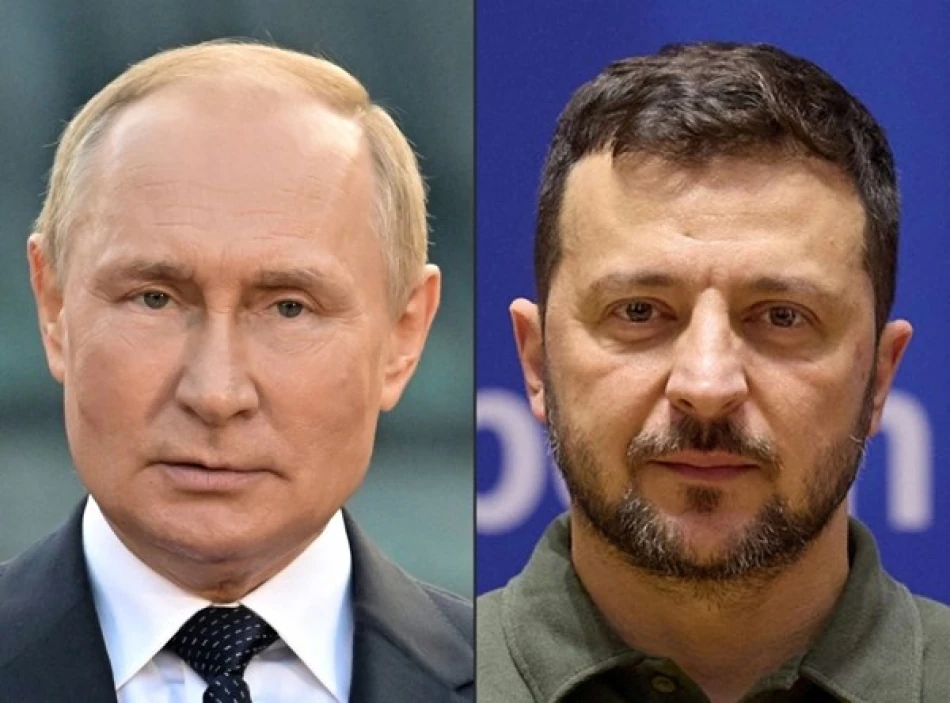
Trump: Putin and Zelensky Reportedly Arranging Summit Talks
Trump Claims Putin and Zelensky Are Preparing Direct Talks to End Ukraine War
President Donald Trump announced that Russian President Vladimir Putin and Ukrainian President Volodymyr Zelensky are arranging a meeting to discuss ending the ongoing conflict in Ukraine. The revelation, made during a radio interview, suggests potential diplomatic momentum as the war enters its third year with mounting economic and human costs for all parties involved.
Diplomatic Breakthrough or Political Theater?
Trump's statement that both leaders are "preparing for it" marks a significant departure from the entrenched positions both sides have maintained throughout the conflict. The assertion comes as Ukraine faces increasing pressure to consider negotiations, while Russia grapples with sustained economic sanctions and military setbacks.
The timing appears strategic. With winter approaching and energy costs soaring across Europe, there's growing international pressure for a diplomatic resolution. Trump's emphasis that "the crisis must stop" reflects broader sentiment among global leaders seeking stability in energy markets and supply chains.
Historical Precedent for High-Stakes Negotiations
Direct talks between warring leaders have historically produced mixed results. The Camp David Accords of 1978 successfully brokered peace between Egypt and Israel, while the 2018 Trump-Kim summits failed to denuclearize North Korea. The key difference often lies in whether both parties genuinely seek compromise or merely aim to improve their negotiating positions.
What Each Side Brings to the Table
Putin likely seeks sanctions relief and recognition of territorial gains, while Zelensky needs security guarantees and reconstruction funding. The challenge lies in finding middle ground that doesn't reward aggression while providing face-saving measures for both leaders domestically.
Market and Global Economic Implications
Financial markets have shown sensitivity to Ukraine war developments throughout the conflict. Energy futures, grain prices, and defense sector stocks could see significant volatility if substantive talks materialize. European markets, particularly dependent on stable energy supplies, would likely rally on credible peace prospects.
For commodity traders, any genuine diplomatic progress could trigger major repositioning in oil, gas, and agricultural futures. The conflict has fundamentally reshaped global supply chains, and its resolution could unlock billions in reconstruction investment opportunities.
The Trump Factor in International Mediation
Trump's role as messenger raises questions about his potential involvement in facilitating talks. His previous relationships with both Putin and Zelensky, while controversial, could provide unique diplomatic channels unavailable to current administration officials.
However, the effectiveness of Trump-mediated negotiations remains uncertain given his unpredictable diplomatic style and the complex web of international law violations stemming from the conflict. Success would require sustained, multilateral diplomatic support beyond any single individual's influence.
Realistic Timeline and Obstacles Ahead
Even if both leaders genuinely commit to negotiations, substantial obstacles remain. War crimes investigations, territorial disputes, and domestic political pressures in both countries create significant barriers to meaningful compromise.
The international community's response will prove crucial. NATO allies, EU members, and regional powers like China and Turkey each have strategic interests that could either facilitate or complicate any peace process. Without broad international backing, bilateral talks alone rarely produce lasting resolutions to conflicts of this magnitude.
Most Viewed News

 Layla Al Mansoori
Layla Al Mansoori






